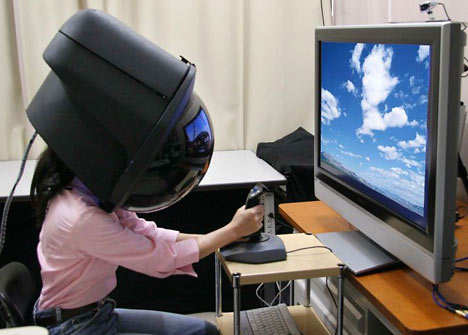These are fascinating times! Quite scary too, now information is growing at an explosive rate and how to cope with all that? And how to validate? Again, it is fascinating to access so much on what is happening, with all information at ones fingertips, everywhere (eh, almost), all the time, for everyone (eh, almost). I feel fortunate to be observing from a vantage point at relative distance, while profoundly feeling impact, based here in rural Africa.
With our organizations growing and maturing we enter new areas, possibly new arenas. It is obvious that the
scare of the uncertain remains the same, the stakes only seem different, and the way these uncertainties are being addressed seemingly changes. For certain, big organizations have big inefficiencies, often seen in overheads and arm wrestling. Small organizations have big inefficiencies too, seen in lack of (economies of) scale and non-alignment of activities. In view of such inherent inefficiencies, it is amazing one sees any yield at all, a tribute to the greatness of entrepreneurship and action, wherever.
So many new, relevant questions come up, and they seemingly come up within shorter intervals. Quite a number of them utterly profound and existential. In whatever direction one looks there are these important questions popping up. For me, the issue of the finiteness of existing models we base our societies upon remains the most daunting. Although as corporate international community we still seem to shy away from the consequences, it seems obvious the earth will not continue to sustain growth. Energy extraction, dumping of waste, growth of population, it all puts heavy strain to our current models (of economics).
It is all about
the are of living, is it not? Life is about living it, thus I gladly witness calls for more integration, harmonization, and inter-disciplinary activities in research and development. There is still a lot to be applied into that, as daily life in rural Africa time and time again shows. Interweaving
the issue of relationships into all we do is, in my view, highly needed. It is, and remains, about human beings and how Homo sapiens relate. Well being, that is where it is about.
Just an example, it is said that the production of solar panels cost more energy then they yield over their technical usable life. However, if there would be no solar panels in the bush, the main source of energy in the bush would not be harvested. So producing solar cells can been seen as actually transporting energy spent at the production site - in an industrialized setting - to the user site - in a remote setting. Obvious, putting solar next to the production site is
not done, but in the bush we cherish this relationship between industrialized and remote settings. Thus we welcome the transport of some energy from the production site to the bush. Thus reviewing the relationships component became part of the sustainable energy discussion.
Yes, I am enthusiastic about the 'Macha Works Model', as a framework for (re)action valuing relationships. The model calls to heed
'calling' first,
'commitment' second, and then come phases of
'looking',
'reacting',
'waiting', and
'interacting'. Although this takes time, it is wonderful to see that thus enshrined activities in the Macha area are there to stay. There hardly any of bankruptcy - thus no writing off of capital- and a continued and clear focus on sustainability and progress. The model inherently points towards
Social Return On Investments, which I reckon is a viable way to save the current economic models, by introducing monetary representation of non-monetary results in communities.
 The 20/60/20-rule talks about performance. This rule-of-thumb predicts that within a community 20% of people will show strong performance, 60% perform on average, and 20% of the persons will show weak performance. Thus 20% drive forward, 60% coast, and 20% slow down progress.
The 20/60/20-rule talks about performance. This rule-of-thumb predicts that within a community 20% of people will show strong performance, 60% perform on average, and 20% of the persons will show weak performance. Thus 20% drive forward, 60% coast, and 20% slow down progress.














